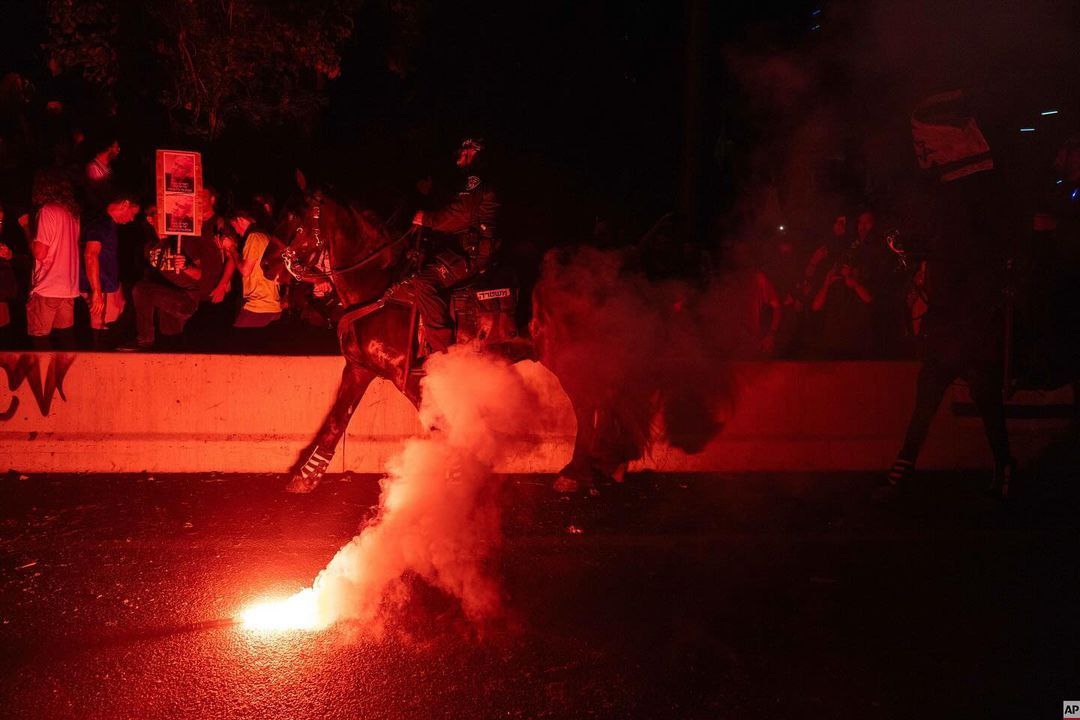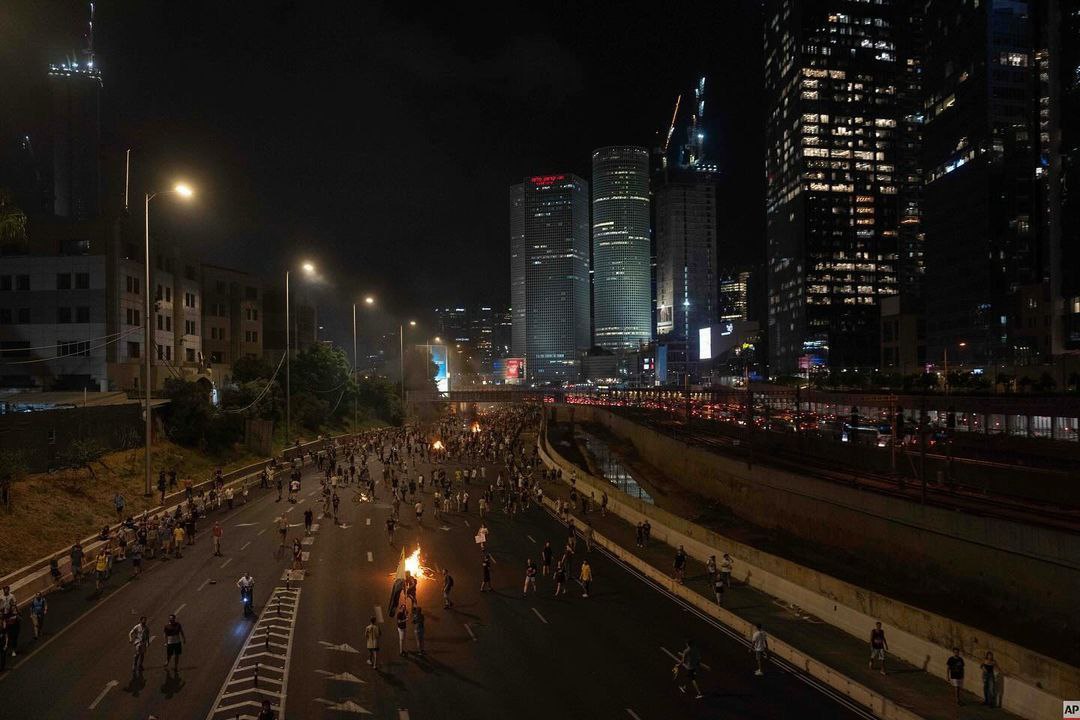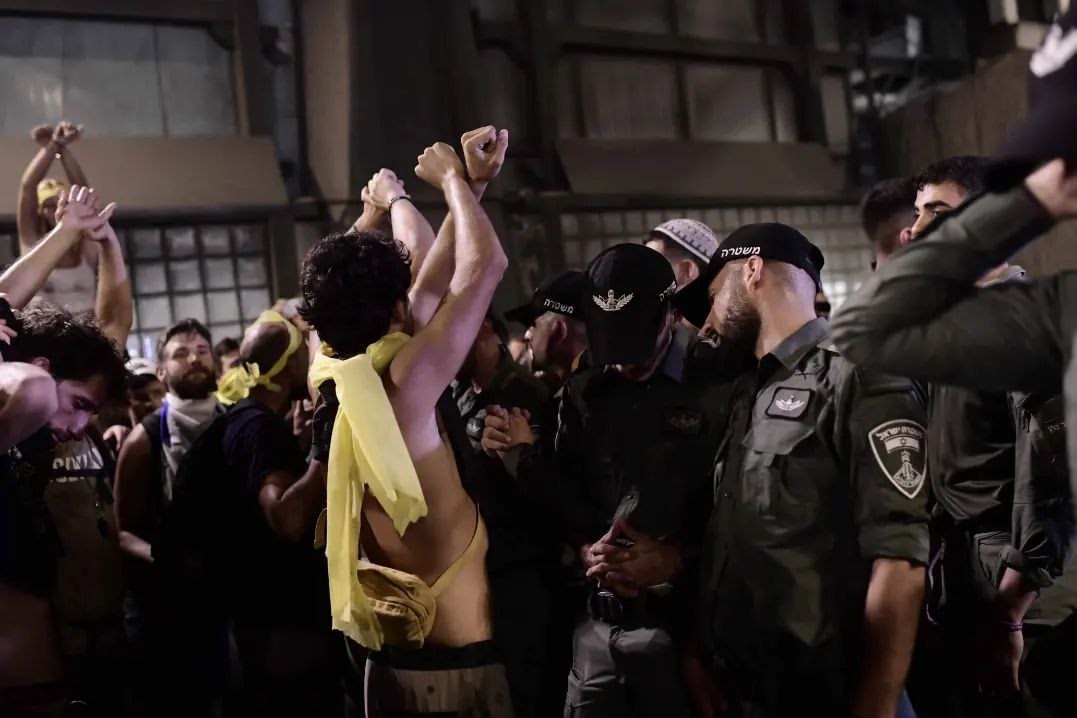A call for a general strike in Israel to protest the non-return of hostages held in Gaza led to closures and other unrest across the country, according to Arab media. (Updated 2 September at 11:35 a.m.)
Hundreds of thousands of Israelis took to the streets late Sunday night in grief and anger after six hostages were found dead in Gaza. The families and much of the public blamed Prime Minister Benjamin Netanyahu, arguing they could have been returned alive as part of a deal with Hamas.


Israel’s largest union, the Histadrut, called for a general strike on Monday. It aims to shut down or disrupt major sectors of the economy, including banking, health care, and the country’s main airport.
Airlines at Israel’s main international airport Ben-Gurion suspended outbound flights from 8:00 a.m. to 10:00 a.m. Incoming flights continued to operate as normal during that time, according to the Israel Airports Authority.


Protesters are demanding that Netanyahu reach an agreement to return the remaining approximately 100 hostages held in Gaza. Many Israelis support the stance, but others prioritise the destruction of Hamas over the release of the hostages.
Netanyahu had earlier promised “total victory” over Hamas and blamed it for the failure of the protracted negotiations. Israel also accused Hamas of killing six hostages shortly before Israeli forces arrived at the tunnel where they were being held.

Hamas-led militants killed about 1,200 people, mostly civilians, when they stormed southern Israel on 7 October. Israel’s retaliatory offensive in Gaza left more than 40,000 Palestinians dead, according to Gaza’s Health Ministry. The war displaced most of the 2.3 million people and plunged the enclave into a humanitarian disaster.
